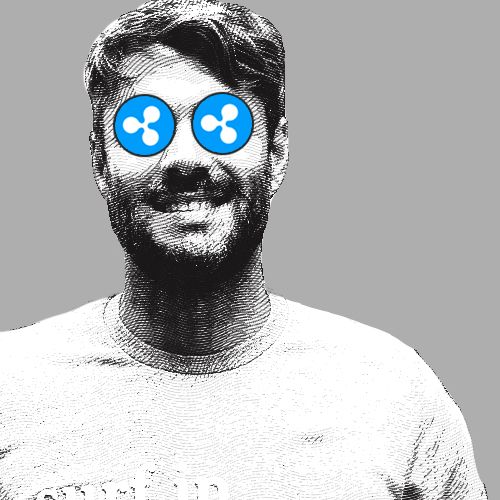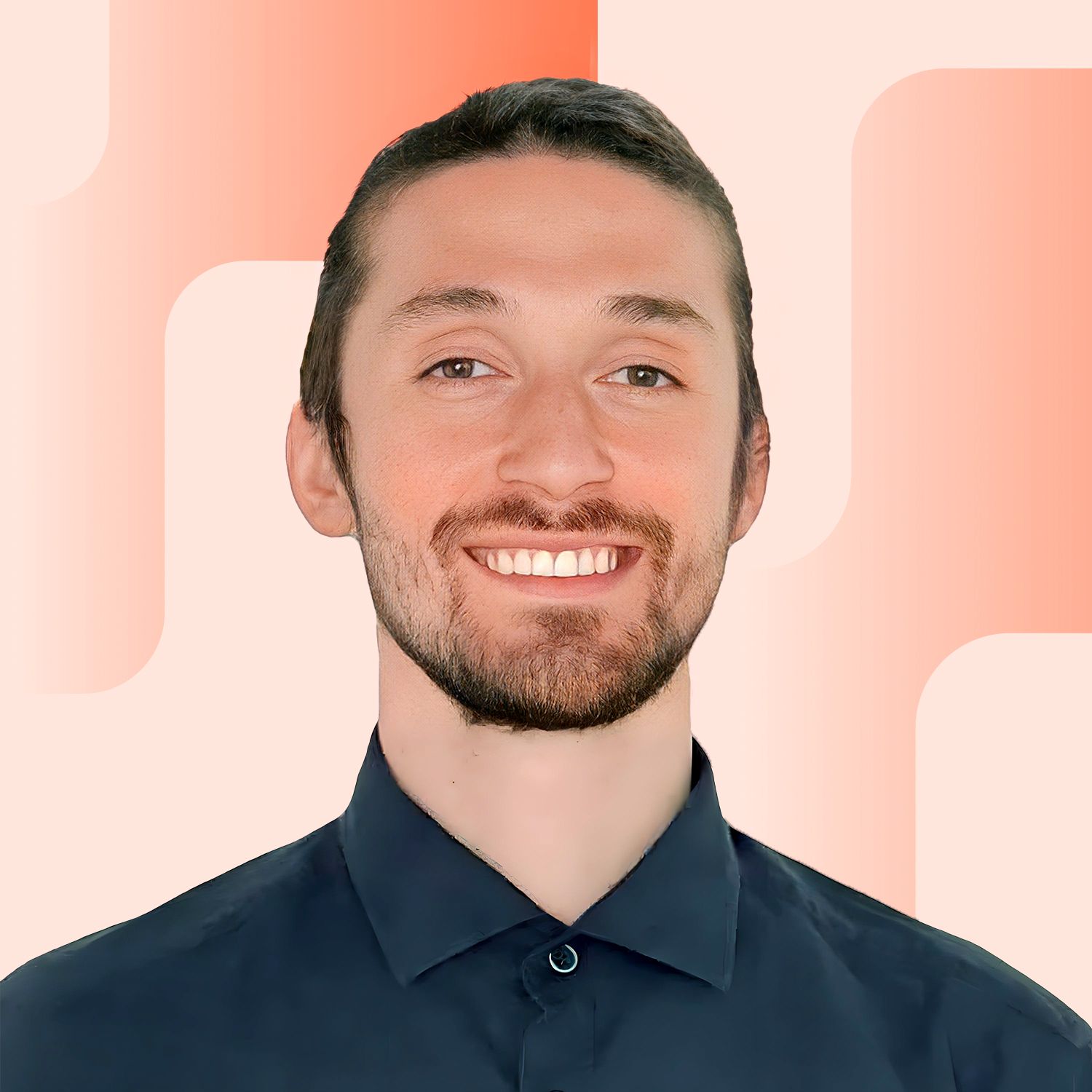BeInCrypto recently had the chance to catch up with Tezos co-founder Arthur Breitman at Paris Blockchain Week to talk about the high-profile project, future developments, and the role of the press in the cryptocurrency space.
Editor’s Note: Arthur Breitman took issue with our original version of this interview, which was professionally translated from French and correlated directly to what he said. However, Breitman believes the quality of the translation did not accurately reflect his answers and has supplied us with his own answers in English. Problematically, Breitman claimed on social media that we wrote the answers ourselves and that the article is essentially fake news. On the contrary, we used professional translators to translate the interview and maintained strict journalistic integrity without any intention of misrepresenting Breitman or misleading our readers. Below is the updated interview with Breitman’s supplied text, verbatim. We have not edited it, except for formatting.Could you introduce yourself briefly, how did you come to be a co-founder of one of the leading cryptocurrency in the world?
It happened progressively. I was interested in this topic and Tezos, initially, was first and foremost a fun and interesting project, a thought experiment. But thought experiments are not very interesting if they just stay in your mind so I wanted to make it concrete.What had you done prior to this, professionally, that led you to the world of crypto?
I studied computer science and applied mathematics, professionally I’ve worked as a quantitative analyst on market making desks in New York, with a focus on statistics. My interest in cryptography harks back to high-school, in the 90’s, when the Internet popularized the technology. Having a strong interest for mathematics I became quite interest in it. So when something came up at the intersection of finance, cryptography,distributed systems, computer science, it hit a confluence point of my interests.What led you to become the co-founder of what is now a leading cryptocurrency, Tezos?
Initially, Tezos was just a fun project to think about, a thought experiment, but I wanted to explore it deeper and the only way to do that was to make it a reality.So Tezos may be well known, but it may not be the most well known, what’s your one minute elevator pitch for Tezos?
Ideally Cryptocurrencies should strive to adhere to a fixed set of rules. When they do change, it is through ill defined procedures. Therefore, either they have trouble evolving, or their changes are determined by a handful of influential people. The idea with Tezos was to create a cryptocurrency which would benefit from all of the active research in this new field. Rather than try and come up with a perfect design, it is built with the capacity to evolve.Tezos participants can incrementally improve the system, reaping the benefits of research and development. Does this make Tezos the decentralized currency par excellence?
I certainly hope so! It goes beyond decentralization of the network’s security and straight into the decentralization of innovation.Tezos raised a lot of money during its initial coin offering (ICO). However, in the months following this fundraising, when Tezos appeared in the press, if was sometimes with negative reports, news of disgruntled token buyers turning against Tezos, or people who were leaving the Tezos adventure. It seemed the house of Tezos was shaking a bit. Does the future of Tezos look more serene?
The person who “left the adventure” is the nutcase at the root of all the issues. He left in February 2018 and the issues went away. It doesn’t get more clear cut than that. What’s particularly scandalous is the biased reporting of a news organization. A couple of wire reporters became a mouthpiece for this guy, and gave him a completely uncritical soapbox.Which news organization?
Reuters.2018 was a painful year for all cryptocurrencies. Many currencies are still suffering and have not yet recovered. On the contrary, Tezos has experienced a meteoric rise in recent months. What do you attribute it to?
That’s a hard game to play. You know, I worked on trading floors in the US for years and, for some reason, you gotta have CNBC broadcasting there 24/7. Whenever the market moves, CNBC will make up a bullshit explanation for it. In trader lore, there’s a legend about a journalist needing to write a column about the price of copper going up and writing: “there were more buyers than sellers”, a tautology. You can always slap a narrative on these, people in the press do that, but it’s not my place to speculate on this.Despite everything, since the beginning of the year, there have been events that explain the rise of Tezos. In particular, can you tell us more about “Athens?” Is it a vote? An update?
Athens demonstrates the particularity of the Tezos network — its ability to be updated in a decentralized way. This is still just a modest upgrade for the moment: it allows more users to participate in the process of securing the chain. It also increases the throughput of calculation on the chain and then it incorporates a more general clean up of the code. Athens is a proposal made a few months ago on the network by a French team, Nomadic Labs, based here in Paris (note: the team is funded by the Tezos Foundation). There is a community vote in three steps. We have already passed the first two steps. There was a successful test just after the second step. The third step is to ask users, “Do you really want to activate Athens?” For the second vote, there was a turnout of more than 80 percent. You sometimes hear that votes on the blockchain do not work, people don’t pay attention, etc. This demonstrated the opposite. 80 percent is great because it shows that there is an active community that is really committed to the project. The third vote looks set to be successful, in which case the protocol will be automatically activated. It’s like an automatic update of the operating system on a smartphone, except that instead of being signed by a centralized organization, the whole community signs for it by voting. This is the first time a blockchain will be updated this way. It’s never been done before.Does this operation protect you from a crisis like the one that affected Bitcoin Cash, with a Hard Fork that divides the community and seriously affects the currency?
History will be the judge of that — but we are in a good position to avoid that type of crisis, yes.You’re French, you’re the only cryptocurrency with a stand here at the Paris Blockchain Week Summit. Can we say that Tezos is a french cryptocurrency?
Tezos is an international cryptocurrency. There are validators on five continents, development teams in Japan, the United States, in France… really, everywhere. But we can say that it speaks with a French accent.Do you think that the French ecosystem is favorable to the emergence of national champions with the blockchain, according to the French government’s repeated communication on the matter? Ledger’s CEO regretted that the government’s BPI (State Investment Bank) had not invested venture capital in any blockchain companies.
To be completely honest, I’m not close enough to the rest of the French ecosystem to have a strong opinion about the effects of government activity in this area. I would invite you to reach out to the actors who are.Did you have any contact with Cédric O, the new Minister for the Digital Economy?
Not yet, but I did see his presentation yesterday at the Ministry of Finance, and found it compelling.So at least, as far as the speeches go, it is sufficiently ambitious to make France into a blockchain nation?
The speeches are very good, we’ll see if the actions follow.What events will create news for Tezos by the end of the year?
Users are already talking about the next vote! So yes, there will be votes on more substantial elements of the chain. Until now, the Tezos ecosystem has focused on “baking” (that’s quite a French touch), the activity of securing the chain through validators. This year, we will begin to see the development of applications on the network. There is a real estate assets securitization project on the Tezos blockchain. I really like securitization as a use case and I think we may see more projects in that vein. There is also a decentralized insurance project. There are quite a few projects and we’re going to start seeing some of them go live on the chain.
Top crypto platforms in the US
Disclaimer
In adherence to the Trust Project guidelines, BeInCrypto is committed to unbiased, transparent reporting. This news article aims to provide accurate, timely information. However, readers are advised to verify facts independently and consult with a professional before making any decisions based on this content. Please note that our Terms and Conditions, Privacy Policy, and Disclaimers have been updated.

Sane Lebrun
Sane is heading social media marketing activities for BeInCrypto. After being graduated from the ESCP Europe Business School with a master in management, he has been in charge of leading marketing initiatives for tech companies like Gameloft and EyeEm. He has later jumped on the cryptocurrency bandwagon and is operating since 2017 as a blockchain marketing consultant.
Sane is heading social media marketing activities for BeInCrypto. After being graduated from the ESCP Europe Business School with a master in management, he has been in charge of leading marketing initiatives for tech companies like Gameloft and EyeEm. He has later jumped on the cryptocurrency bandwagon and is operating since 2017 as a blockchain marketing consultant.
READ FULL BIO
Sponsored
Sponsored

![Tezos Co-Founder: ‘Applications Will Multiply on the Tezos Blockchain This Year’ [BeInCrypto Interview]](https://beincrypto.com/wp-content/uploads/2019/05/featured-43-1024x427.jpg.optimal.jpg)